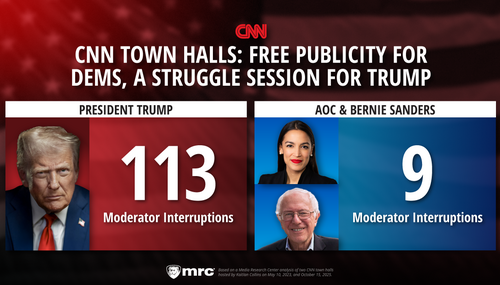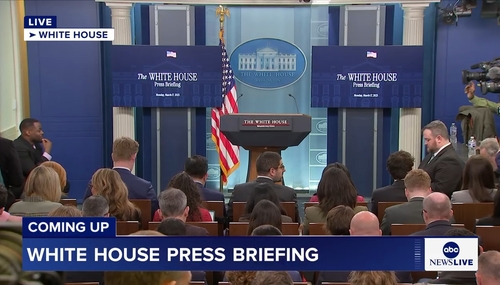New Yorker senior editor Hendrik Hertzberg appeared on Wednesday's "Morning Joe" and compared Rush Limbaugh to 1960s segregationist and Ku Klux Klan member Bull Connor. He also linked Barack Obama to Mohandas Gandhi and Martin Luther King. According to Hertzberg, "And I'm not saying that Obama is Martin Luther King or that Rush Limbaugh, the leader of the opposition, is Bull Connor. But the dynamic is very similar." [Audio available here.]
Hertzberg, who once wrote for Newsweek, was on the MSNBC program to promote his new article that touts President Obama for embracing "Gandhian hardball" in the mold of the civil rights movement. Specifically, the New Yorker editor asserted that Obama used this strategy in the way that he fought congressional Republicans over the stimulus bill. Hertzberg told "Morning Joe" host Joe Scarborough, "You know, when, when [Martin Luther] King offered non-violence, when the civil rights movement came out and was non-violent and then the other side greeted it with fire hoses and clubs, nobody said, 'Oh, King has failed in his effort to have non violence.'"
(It should be pointed out that Bull Connor, the Alabama public safety commissioner in the '60s, was a Democrat, thus making Hertzberg's comparison even more faulty.) Scarborough began the segment by reading from the New Yorker article. The conservative host offered an aside that the piece made him want to "throw up in my mouth a little."
Hertzberg wrote in the February 23, 2009 issue:
Fifty years ago, the civil-rights movement understood that nonviolence can be an effective weapon even if—or especially if—the other side refuses to follow suit. Obama has a similarly tough-minded understanding of the political uses of bipartisanship, which, even if it fails as a tactic for compromise, can succeed as a tonal strategy: once the other side makes itself appear intransigently, destructively partisan, the game is half won. Obama is learning to throw the ball harder. But it’s not Rovian hardball he’s playing. More like Gandhian hardball.
Later in the segment, Scarborough attacked the notion that the stimulus bill was bipartisan. He derided, "But in my mind- and you've seen the show, I try to be somewhat down the middle as much as I can- um, Barack Obama offered a cocktail party and invitation to the Super Bowl."
For more on this topic, see a previous NewsBusters posting.
A partial transcript of the February 18 segment, which aired at 8:30am, follows:
JOE SCARBOROUGH: Welcome back, we're having a debate about the 1990s right now with senior editor and political writer of the New Yorker, Hendrik Hertzberg, who wrote this in the latest issue of The New Yorker: "50 years ago the civil rights movement understood that nonviolence can be effective weapon even if, or especially if the other side refuses to follows suit. Obama has a similarly tough-minded understanding of the political uses of bipartisanship. Which, even if it fails as a tactic for compromise can succeed as a tonal strategy once the other side makes itself appear intransigently, destructively partisan, the game is half won. Obama is learning how to throw the ball harder. But it's not Rovian hardball he's playing, it's more like-" I'm going to throw up in my mouth a little bit when I say this but I'm going to get the sentence out- "Gandhian hardball."
...
8:32
SCARBOROUGH: Did Gandhi go to the British and say "I won?" You're talking about How it's not Rovian. I thought it was a very Rovian display over the past week, where Rahm Emanuel was bragging about Obama mocking Republican people. Obama telling Republican senators, "Hey, I won. We're going to write the bill the way we want to write it." That's Gandhian?
HENDRIK HERTZBERG (The New Yorker): You got to learn a little bit more about what the Indian independence movement was really like. It was a whole of people and they weren't all wearing loin cloths. But this is- This is- I'm making this comparison, essentially, between the civil-rights movement and, and Obama. And I'm not saying that Obama is Martin Luther King or that Rush Limbaugh, the leader of the opposition, is Bull Connor. But the dynamic is very similar. You know, when, when King offered non-violence, when the civil rights movement came out and was non-violent and then the other side greeted it with fire hoses and clubs, nobody said, "Oh, King has failed in his effort to have non- violence."
SCARBOROUGH: But, but, I mean, Barack Obama in your mind, in the mind of people that write for the New Yorker, Barack Obama offered bipartisanship. But in my mind- and you've seen the show, I try to be somewhat down the middle as much as I can- um, Barack Obama offered a cocktail party and invitation to the Super Bowl. What did Barack Obama offer to make himself Gandhian?
HERTZBERG: One third of his package was tax cuts. One third.
SCARBOROUGH: To who?
HERTZBERG: Oh, sorry, but it was to people who actually need and might spend the money.
SCARBOROUGH: To who?
HERTZBERG: Not to the rich. In other words, is your test that if you don't give a lot of money to the rich, a lot of tax cuts to the rich, then you're, then you're what? You're not bipartisan?
SCARBOROUGH: Your argument, though, is he gave tax cuts and, so, he was bipartisan. But, I don't know a single Republican in Washington that would give $80 billion in earned income tax credits, which most Republicans see as income tax cuts for people who don't pay income taxes. So, we can debate that. And you can take the traditionally liberal side and I can take the traditionally conservative side. But, it ain't bipartisanship to put in $80 billion of that.




